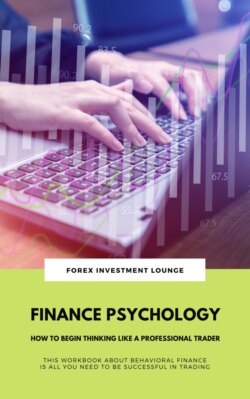Читать книгу Finance Psychology: How To Begin Thinking Like A Professional Trader (This Workbook About Behavioral Finance Is All You Need To Be Successful In Trading) - FOREX INVESTMENT LOUNGE - Страница 7
На сайте Литреса книга снята с продажи.
Heuristics
ОглавлениеSince the human brain can only process a small amount of information at the same time, it tends to simplify its decision making. These mental shortcuts help people to make quick decisions, but cause irrationality and a myriad of errors. In finance, these behaviours are called "heuristics".
Many investors choose certain investments because they are the focus of general interest. The "Deutsche Aktienindex" (DAX) is present in the media every day. Traders therefore often trade financial instruments that refer to the DAX, although other indices may provide much clearer price patterns. However, its high level of recognition creates the illusion of security among stock market players. They think they know the DAX and are therefore better able to assess its price development. However, sentiment analyses repeatedly prove the exact opposite.
Just because something is better known doesn't mean it has to be better. This is demonstrated time and again by numerous investments in local stocks. Comparable, but unknown companies from abroad can be much more profitable. But here too, the degree of familiarity of the companies creates a feeling of trust and security for the trader. Which is why shares of the own country are always preferred when investing.
The rapid availability of information is another aspect of plant behavior. They lead to distorted perceptions. In most cases, the stock market participant only needs a few indications to buy a certain share. This behaviour is called "rule of thumb decision". The constant attention in the media can lead to the fact that one thinks that a certain share is a must. Titles that are constantly discussed in trade journals or special online portals additionally support this behaviour.
Because of his limited receptivity, a person tends to unconsciously seek information that supports his own opinion. If a position is in loss, a trading beginner will get the impulse to look for good reasons why it will rise again. In this context, the Internet can become a problem. Because the large amount of information leads to finding even more evidence that one is holding one's position, even though many indications have long since spoken in favour of selling.
Another aspect are self-fulfilling prophecies. "Will the crash come in October?" These and similar headlines are featured in the media every year. But just because there have been a few very strong price setbacks this month, it doesn't have to be like this every year. But the constant sprinkling of the keyword "crash month of October" itself can influence events. The constant presence of news on a topic can generate interest among traders and thus lead to corresponding actions that ultimately move the market.
